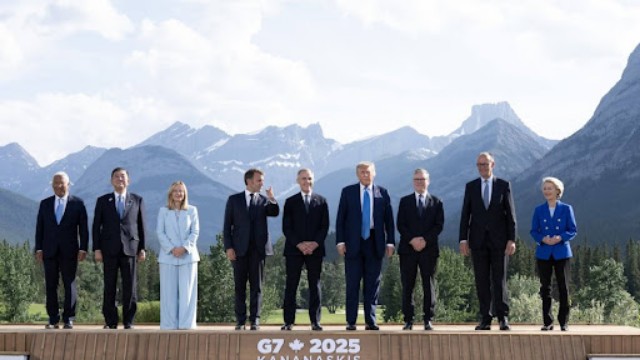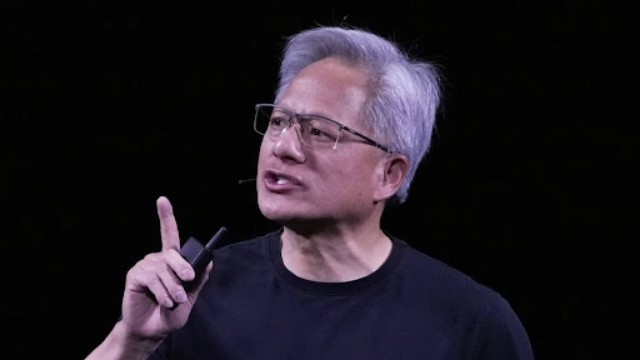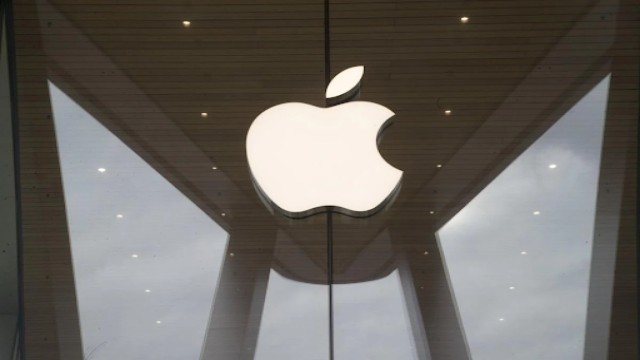
French President Emmanuel Macron asks Prime Minister Mark Carney where to look while they get ready for the G7 group photo in Kananaskis, Alberta, on Monday, June 16, 2025. (Photo: THE CANADIAN PRESS/Adrian Wyld)
In a bold step toward modernizing global governance, G7 countries have committed to using artificial intelligence (AI) more actively across government systems. The group also promised to support the growth of quantum technologies, recognizing their future role in critical industries and national security.
The agreement came at the close of the G7 Summit held in Kananaskis, Alberta, where leaders emphasized the need to embed AI into public services. Their goal: to streamline administrative operations, offer better services to citizens and businesses, and improve overall government efficiency.
Canada, holding the G7 presidency this year, will take the lead by hosting “rapid solution labs.” These labs aim to identify and remove barriers that slow down AI implementation in government departments. Alongside this, the nations will design a clear “road map” for carrying out successful AI projects. This includes developing a library of open-source AI tools that can be shared among G7 members.
Another key point of the summit was AI accessibility for small and medium-sized businesses (SMEs). Recognizing the role these enterprises play in economic growth, the G7 countries agreed to create conditions where even micro-businesses can learn about and adopt AI. This is expected to boost productivity and competitiveness across various sectors.
However, the leaders also acknowledged the flip side of this technological boom. In a joint statement, they pointed out that greater AI usage could stress energy infrastructure, raise operational costs, and widen the tech gap between advanced and developing nations. They pledged to work on making AI more energy-efficient and to support less-developed countries in building their own AI capabilities.
The G7 members didn’t stop at AI. They also released a joint vision for quantum technologies — tools that harness the strange and powerful laws of quantum physics. While still in early stages, these technologies are poised to transform areas like banking, communication, energy, health care, transportation, and even agriculture.
Quantum computing, a major part of this emerging field, could offer solutions to problems too complex for today’s most advanced machines. But this power also comes with potential risks. The G7’s statement highlighted the importance of considering national and international security as quantum tech progresses.
Florian Martin-Bariteau, a technology and society expert at the University of Ottawa, welcomed the formation of a new working group focused on quantum research. He called it a major step forward, especially given that quantum development is still in its early days.
This summit marked the first time the G7 officially placed quantum technology on its high-priority agenda. With AI already reshaping economies and quantum computing close behind, the G7’s move signals a new era of global cooperation in digital innovation.















